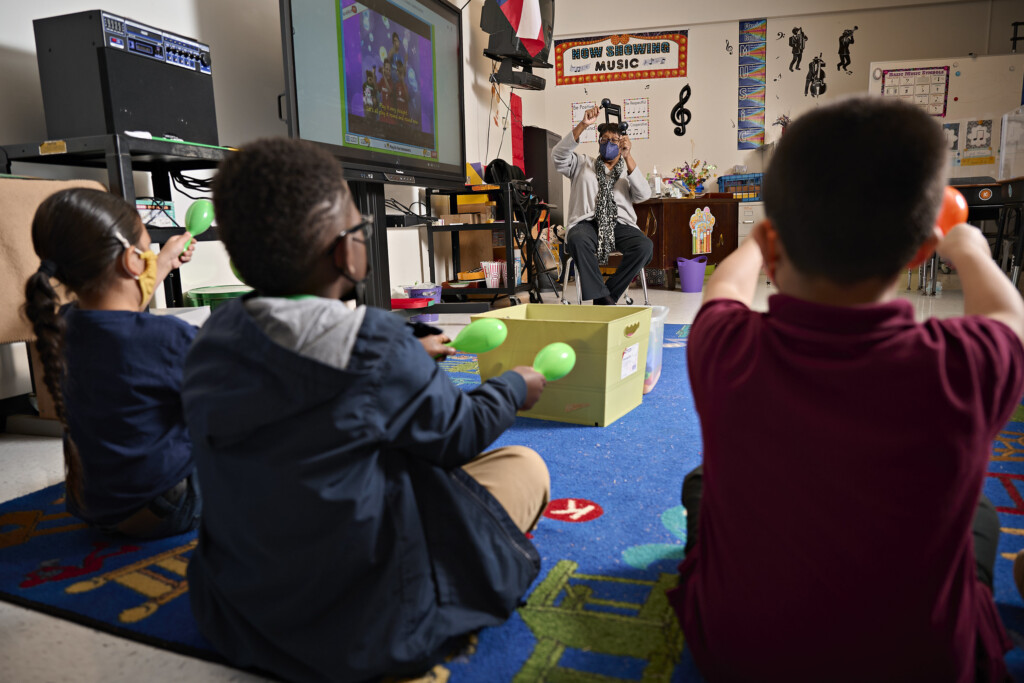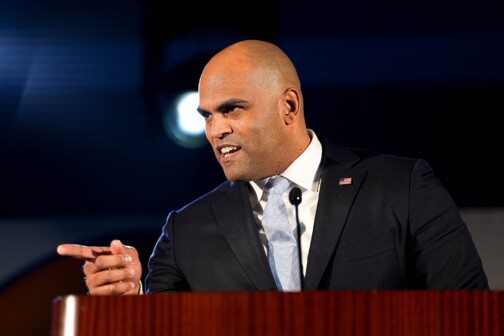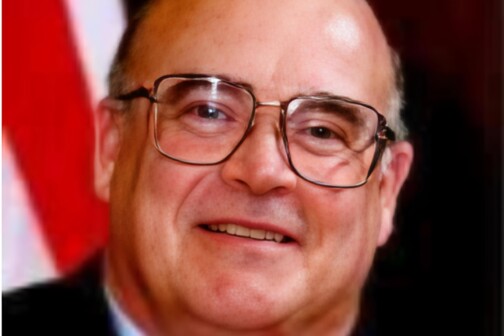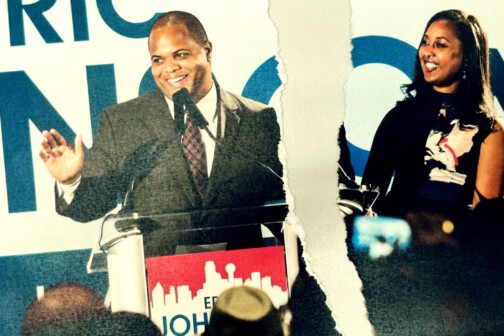At least two bills have been filed for next year’s state legislative session that place school vouchers on the table once again. And, as expected, the same groups—lawmakers, public school advocates, and school districts—are lining up to say it will never happen.
Voucher programs would take state funds and give them to parents who wish to place their children in private schools instead of public schools. The idea has earned plenty of attention as both an applause line during midterm campaigning and as the 88th Texas Legislature eyes its January convening.
Last May, Gov. Greg Abbott couched vouchers in terms of school choice and parental empowerment. “We can fully fund public schools while also giving parents a choice about which school is right for their child,” he said. “Empowering parents means giving them the choice to send their children to any public school, charter school or private school with state funding following the student.”
Abbott sought to allay fears that a push for vouchers would come at the expense of public schools. “If you like the public school your child is attending,”Abbott said, “it will still be fully funded.”
The idea of taking public money away from public schools seems to be the inflection point for voters, too. Polling that same month showed that voters were split on the matter—46 percent were in support of vouchers, while 43 percent were against it. More than 10 percent were unsure. However, the same poll also found that 82 percent were worried that a voucher program would reduce public school funding.
Historically, voucher bills haven’t passed because it’s the rare topic that is opposed by a majority of both sides of the aisle.
Rural Republican legislators have been loath to support the plan because public schools are often the only education option in their districts and they’re often the largest employers, too. Democratic legislators have opposed voucher bills for the same reasons and see them as a move to defund public schools, particularly in urban districts.
Most voucher proponents present the premise as simple and almost zero-sum. You’ll often hear the term “the money follows the child,” meaning that while the public school loses the funding one child brings, it also isn’t responsible for teaching that child anymore. They believe it all evens out.
But that only works if you don’t scale what that money pays for. Multiple children are taught by the same teacher, ride the same bus, are heated and cooled by the same HVAC, and eat in the same cafeteria. You can’t lay off half a teacher or saw off a third of a school bus and return it for money, so schools lose funding for a student (or more) but still have to operate as if they didn’t.
On average, students that use vouchers to attend private schools do less well on tests than similar students that do not attend private schools.
The Brookings Institution
This idea also operates under the premise that it’s public school children who are using the vouchers, ostensibly to get away from underperforming public schools.
However, in many states that have voucher programs, this didn’t turn out to be the case. In Arizona, for instance, three out of four students who applied for a voucher had never attended a public school in that state.
Those who have studied voucher programs for decades also say that the promise of improvement among students who move from public to private schools is also largely unfulfilled.
Michigan State University professor Josh Cowan, who has conducted major studies of voucher programs for more than 20 years, says that outcomes are actually worse for those students. When he was part of a team that evaluated Milwaukee’s program, he said that the research found that vouchers had little impact on academic outcomes.
“Our evaluation tracked more than 2,500 voucher kids alongside 2,500 carefully matched public school kids. After five years, we found very little difference on test scores between the two groups,” he wrote in an op-ed on The Hechinger Report. “The end of the Milwaukee evaluation coincided almost exactly with the circulation of a report showing shockingly bad early test score results for students in the Louisiana voucher program in the years following Hurricane Katrina.”
In fact, he said, studies of programs in Indiana, Ohio, and Louisiana also revealed similar outcomes. The Brookings Institution analyzed studies on four states, finding that “on average, students that use vouchers to attend private schools do less well on tests than similar students that do not attend private schools.” A review by Chalkbeat found much the same thing.
Ironically, David Figlio, dean of the School of Education and Social Policy at Northwestern University, told U.S. News and World Report that his research found that voucher programs targeted to low-income students do improve public schools, finding that the competition with private schools “does move the needle.”
It also seems that students who were in voucher programs were more likely to attend and complete college.
Cowan and other researchers said that the whole idea had better outcomes when it was smaller in scale and more tailored to individual students and what they might need to succeed, too. Those early successes in smaller programs buoyed interest in the idea of school choice, but scaling it for larger consumption has not been broadly successful.
And then there is the cost. According to the American Federation for Children, voucher programs, on average, offer about $4,600 per student per year. Even if the state legislature created a program that offered the base per-pupil funding for public schools, it would only be $6,160 a year.
A look at four top-tier local private schools found starting tuitions ranging from $22,600 (Jesuit Preparatory) to $36,588 (sophomore year at St. Mark’s School of Texas). Even if a parent could find a private school that takes the average cost of private school tuition statewide ($9,000, according to EducationData.org), it would still leave families footing at least $3,000 a year per child.
But there is also an issue of accountability.No Child Left Behind, the federal law that introduced wide-scale standardized testing to measure academic progress, was conceived in part to show taxpayers the value of their tax dollars. Texas gauges success through the STAAR test.This means that to be fair, any bill that seeks to divert tax dollars to private schools would need to provide similar accountability, most advocates insist.
This means that to be fair, any bill that seeks to divert tax dollars to private schools would need to provide similar accountability, most advocates insist.
“If you’re going to say that the money follows the child, you’re going to have to provide the same regulations and restrictions that are placed on our public schools on private schools, too,” said former State Rep. Jason Villalba, a Republican. “So if these private schools are going to accept these resources, then they’re going to have to accept the rigor of certain requirements like that Algebra 2 has to be taught in 10th Grade, STAAR testing, and all these other mandates that people in the private schools don’t want.
“I just don’t think that people are thinking it through, and they want their cake and to eat it, too.”
And that might not actually be a horrible thing, either. Cowan said research has found that when NCLB-style accountability was introduced into voucher programs in Milwaukee, “their results got better.”
But at the end of the day, it appears as if vouchers could still be an uphill battle for supporters. State Speaker of the House Dade Phelan said in May that vouchers have historically failed by a wide margin, but that he would still consider an up-or-down vote.
“The delta’s pretty large on school choice, on getting it across the finish line,” Phelan said.
Earlier this month, Lt. Gov. Dan Patrick seemed to acknowledge that he’d have to make some concessions to get a voucher bill through. When he appeared on the Chad Hasty Show, he promised voucher bills would be directed at large, urban districts.
“If there is a school-choice bill passed, it’s focused on our big cities, our big districts,” Patrick said. “We’ll bracket out rural Texas.”
But that may not be enough to sway rural lawmakers. Last week, state Rep. Ken King, who represents the Texas Panhandle, said he wouldn’t support any voucher bills. “If I have anything to say about it, it’s dead on arrival,” he said during an event held by the Texas Tribune. “It’s horrible for rural Texas. It’s horrible for all of Texas.”
Author







